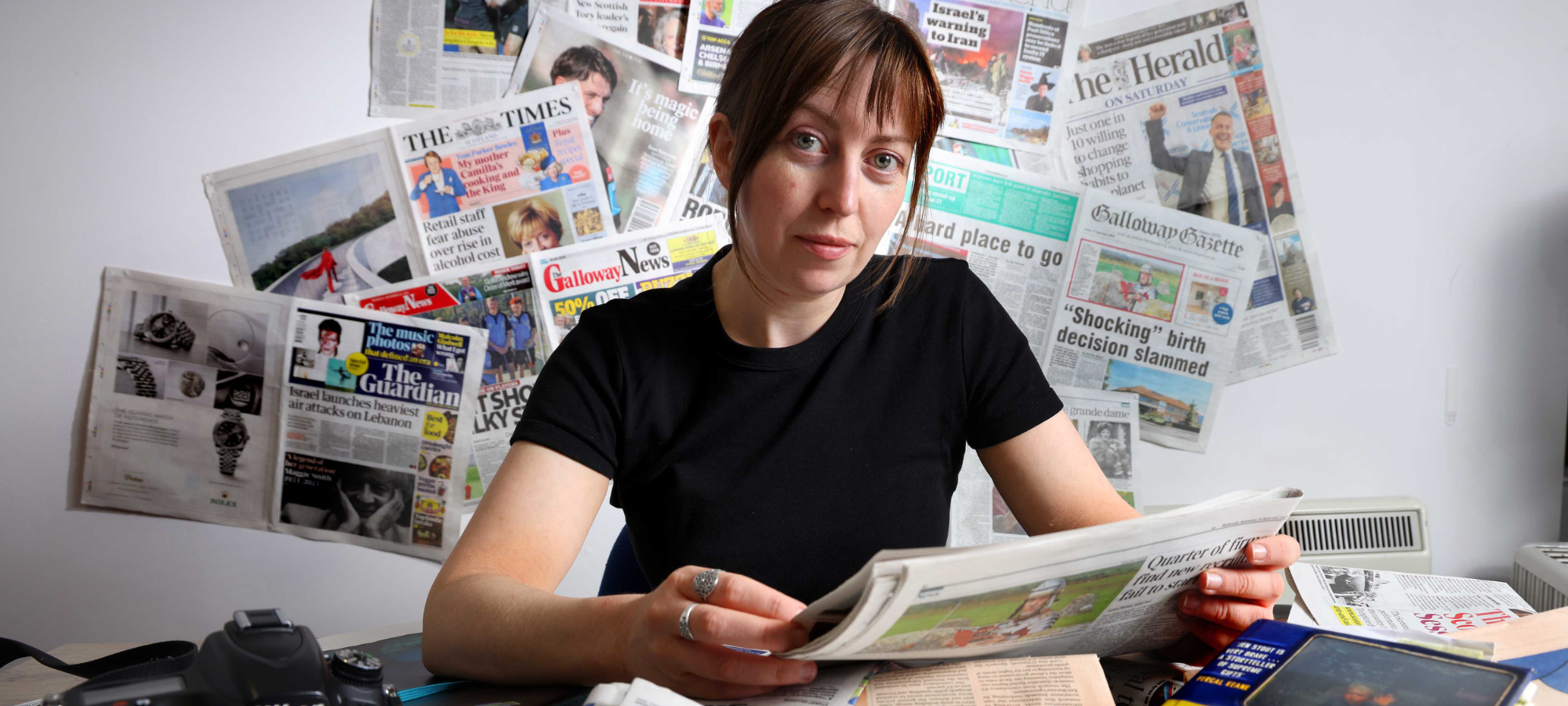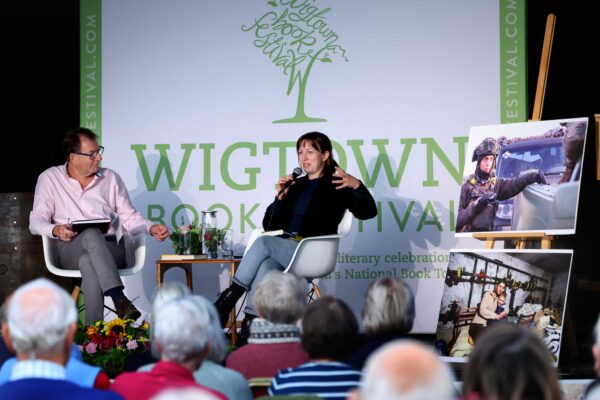
Foreign Correspondent Calls for Action to Reverse the Decline in Scottish Journalism
30/09/24
Foreign Correspondent Calls for Action to Reverse the Decline in Scottish Journalism
30 September 2024
- New generation of independent journalists needed to combat disinformation and lies
- Scottish Government urged to set up new institute to support journalism
Foreign correspondent Jen Stout – who has earned international acclaim for her reporting from the front line of the Ukraine war – has called for action to reverse the decline in Scottish journalism.
Stout was appearing at Wigtown Book Festival to talk about her book Night Train to Odesa - a BBC Radio 4 Book of the Week. During the event she expressed deep concern that no Scottish-based newspapers have a staff correspondent covering Ukraine.She called for the revival of Scottish Government plans to support the establishment of a new institute to support the next generation of skilled, independent journalists.
Stout said:
“Scotland’s newspapers are some of the oldest, and were once among the most prestigious, in the world.“But there are few foreign correspondents left. None of our newspapers have a staff correspondent covering Ukraine - a major war in Europe! - or a foreign correspondent on the staff at all.
“In an age rife with disinformation and lies, we desperately need this expertise and connection - a correspondent can't be replaced by rehashed agency copy. “The foreign sections of our newspapers - or what's left of them - are starting to sound and look identical and impersonal.
“Imagine if there was a Scottish public interest journalism institute - supporting local, international and specialist journalism, but also acting as an advocate for the kind of strong, trusted reporting every citizen needs.
"I was lucky to have work commissioned often by the excellent Sunday Post while in Ukraine - and David Pratt's coverage in other Scottish papers is obviously brilliant - but the fact remains that it's freelancers doing this work, where once newspapers could send their own reporters off to cover big global stories."
Compounding the problem is, according to Stout, the increasing difficulty young journalists from ordinary working families face in getting a foot in the door.
She said:
“These days getting started in a journalism career is hugely expensive. People have to accept unpaid internships, half-funded opportunities plus the growing expectation that they have not just a degree but a postgraduate journalism qualification. That takes tens of thousands of pounds.”
The problem isn't specific to Scotland but Stout argues that Scotland should be leading the way in tackling it. Following the pandemic NUJ Scotland put forward a set of proposals, including a publicly funded institute, which initially found extensive support in the Scottish Parliament.
The institute’s work would involve raising awareness of, and advocating for, public interest journalism, through advocacy and, it is hoped, funding.
Stout said:
“A Public Interest Journalism Working Group was established in 2021 but there has been little progress, and it now falls to Culture Secretary Angus Robertson to push matters forward.“This not just about how we understand foreign affairs and how we tackle misinformation, but about basic democracy functioning in Scotland. “Hopefully MSPs and ministers understand that though journalists can be a pain in the arse for them, a news vacuum full of disinformation and conspiracy would be much worse.”
Each year Wigtown Book Festival organises events by some of the world’s leading journalists in order to bring audiences the unfiltered insights and understanding of the people who bear first-hand witness to the events shaping our world.
These trusted voices cut through the agendas of governments, powerful business leaders and politicians to show us everything from the realities of everything from war and famine to climate change – and often the individual human stories of those who bear the consequences.
Adrian Turpin, Wigtown Book Festival Artistic Director, said:
“During my own career as a newspaper journalist in Scotland and elsewhere in the UK I witnessed an alarming decline in the number of specialist reporters and correspondents.
“Specialists like Jen Stout are vital if we are going to have a media that upholds democracy and freedom by bring us well-researched stories and by holding the powerful to account.
“And here at the festival some of the most compelling and popular events we hold each year are led by respected journalists who have spent decades getting to understand their beat – whether that’s as journalists covering war, overseas events, politics, the environment, health, economics or any of the other forces that affect our world.“It’s of enormous importance that we find a way to ensure that high-quality journalism can flourish and guarantee that future generations have access to expert, independent journalism.”
-Ends-
Notes
About Jen Stout
- Jen Stout is a Scottish freelance journalist who has covered the war in Ukraine for major outlets including BBC radio, London Review of Books, Prospect, and the Sunday Post. Previously she had jobs in TV and radio with the BBC, and was a local newspaper reporter. Jen specialises in long-form and investigative reporting, and is a regular public speaker and host of debates on topics around politics and journalism.
- Her work in Ukraine has been shortlisted for prizes by Amnesty International, the Foreign Press Association and the Scottish Press Awards, among others. In 2023 she won a Travelling Scholarship from the Society of Authors, and a Rory Peck Trust bursary in 2022. Jen's book about covering the war in Ukraine, Night Train to Odesa, is published by Polygon.
- See https://www.jenstout.net
